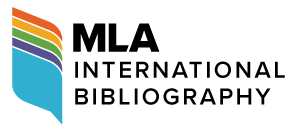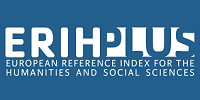The hybrid identity in ‘Tous les hommes désirent naturellement savoir’ (2018) by Nina Bouraoui
DOI:
https://doi.org/10.7203/HYBRIDA.1.16859Keywords:
Identity, Algerian francophone literature, Lesbian, Memory Abstract
Abstract
In Tous les hommes désirent naturellement savoir (2018), Nina Bouraoui carries out the search for her identity. A hybrid identity born of a lesbian nature and built with the experiences of childhood, in Algeria, and adolescence, in France. Making use of the memory, the narrator makes a personal research with the will to answer the first philosophical question: “Who am I?”. To find the solution, Bouraoui begins his writing with a present that places us in the context of his search and that allows us to understand the argumentation and the thematic connection that runs throughout the book. The division is established between “Remember”, “Becoming”, “Being” and “Knowing”. The novel ends by announcing an uncertain future and reflecting a past of which we are all heirs. The goal of this article, The hybrid identity in 'Tous les hommes désirent naturellement savoir' (2018) de Nina Bouraoui, is to find out how is composed the identity of the narrator.
 Downloads
Downloads
 References
References
Aristote. (1953). La métaphysique (Tome 1). Librairie Philosophique.
Bhabha, H. K. (1994). El lugar de la cultura. Manantial.
Bouraoui, N. (2018). Tous les hommes désirent naturellement savoir. JC Lattès.
Bouraoui, N. (16/9/2018). « J’ai combattu ma propre homophobie ». Ouest-France. Consulté le 22 juin 2019. https://www.ouest-france.fr/culture/nina-bouraoui-j-ai-combattu-ma-propre-homophobie-5970928
Bouraoui, N. (2005). Mes mauvaises pensées. Stock (Collection La Bleue).
Bouraoui, N. (2000). Garçon manqué. Stock (Collection La Bleue).
De toro, A. (2009). Épistémologies : Le Maghreb. L’Harmattan (Collection Études transnationales, francophones et comparées).
Didier, B. (1991). L’Écriture femme. Presses Universitaires de France, PUF.
Eribon, D. (2012). Réflexions sur la question gay. Flammarion.
Foucault, M. (2009). Vigilar y castigar: Nacimiento de la prisión. Siglo XXI. Giraud, C. (2014). Quartiers gays. Presses Universitaires de France, PUF (Collection Le lien social).
Husung, K. (2019). Hybridité et genre chez Assia Djebar et Nina Bouraoui. L’Harmattan (Collection Études transnationales, francophones et comparées).
Kaempfer, J. & Zangghi, F. (2003). Méthodes et problèmes. Université de Lausanne. http://www.unige.ch/lettres/framo/enseignements/methodes/vnarrative/
Kraenker, S. (2009). Écrivains à l’identité hybride, représentants d’une littérature-monde d’aujourd’hui et de demain : Karin Bernfeld, Nina Bouraoui, Assia Djebar, Amin Maalouf, Wajdi Mouawad. Synergies. Pays riverains de la Baltique, 6, 219-227. https://gerflint.fr/Base/Baltique6/kraenker.pdf
La grande librairie (20 juin 2019). Nina Bouraoui publie « Tous les hommes désirent naturellement savoir [Fichier vidéo] Youtube. https://www.youtube.com/watch?v=R6xoN4vHo3c
Lejeune, P. (1975). Le pacte autobiographique. Éditions du Seuil. Mortimer, M. (2005). Memoire personnelle et collective dans Je ne parle pas la langue de mon père et Mes Algéries en France de Leïla Sebbar in Expressions maghrébines, 4(1), 99-105. http://clicnet.swarthmore.edu/leila_sebbar/recherche/mortimer.htm
Nesci, C. (2006). Portrait de l’artiste en flâneuse (travestie) : George Sand et la vie moderne in B. Diaz, & I. Hoog-Naginski (dir.). George Sand : Pratiques et imaginaires de l’écriture (pp. 239-251) [en ligne]. Presses universitaires de Caen. https://books.openedition.org/puc/9826
Rich, A. & Brossard, N. (1981). Nicole Brossard et Adrienne Rich : conscience lesbienne et littérature. La vie en rose, 3, 50-51. http://bv.cdeacf.ca/CF_PDF/LVR/1981/03septembre/82069.pdf
Sand, G. (2004). Histoire de ma vie. Gallimard (Collection Quarto).
Segarra, M. (2010). 7. Orientalisme et réappropriation de l’Orient : Nina Bouraoui in M. Segarra, Nouvelles romancières francophones du Maghreb (pp. 103-114).
Karthala. Wittig, M. (2006). El pensamiento heterosexual y otros ensayos. Egales.
Published
How to Cite
-
Abstract817
-
HTML (Français )186
-
PDF (Français )668
Issue
Section
License
![]()
All the documents in the OJS platform are open access and property of their respective authors.
Authors publishing in the journal agree to the following terms:
- Authors keep the rights and guarantee HYBRIDA the right to be the first publication of the document, licensed under a Creative Commons license Attribution-NonCommercial-ShareAlike 4.0 International (CC BY-NC-SA 4.0) that allows others to share the work with an acknowledgement of authorship and publication in the journal.
- Authors are allowed and encouraged to spread their work (once published) through electronic means using personal or institutional websites (institutional open archives, personal websites or professional and academic networks profiles) once the text has been published.
















